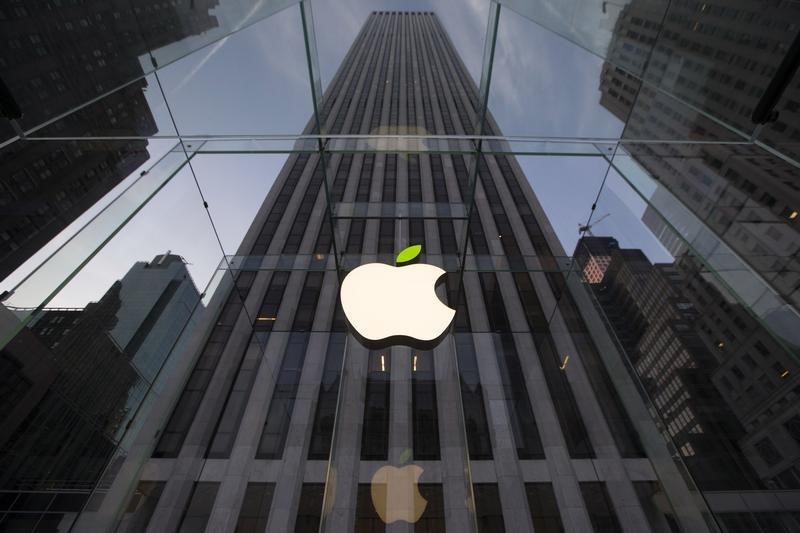© Reuters.
In the face of economic instability marked by high inflation and interest rates, Apple (NASDAQ:)’s latest iPhone release, particularly the iPhone 15 Pro Max, is performing better than anticipated, according to market analysts. This comes as a positive surprise, suggesting that smartphones are less of a discretionary purchase than previously assumed.
Analysts from Morgan Stanley and Wedbush reported a robust start to the sales cycle of the new iPhone model based on pre-order data. The high-end iPhone 15 Pro Max has been particularly successful. A Credit Suisse analyst also noted extended lead times for orders of this model, indicating strong demand.
Goldman Sachs’ analyst Michael Ng echoed this positive sentiment, stating that while there isn’t much visibility into iPhone supply, it is evident that demand is surpassing supply. Ng set a 12-month price target for Apple stock at $216. Other analysts from Morgan Stanley, Wedbush, and Credit Suisse have set their targets at $215, $240, and $220 respectively.
Given that iPhones constitute over half of Apple’s revenue, such a surge in demand for the latest models—especially the more expensive ones—provides encouraging news for investors.
However, not all analysts align with this optimistic trend. Barclays analyst Tim Long suggested potential challenges for iPhone 15 sales in China based on his examination of pre-orders. He noted a slight preference for lower-priced models compared to last year’s mix and set a 12-month price target for Apple stock at $167.
Apple’s Greater China segment represents about 19% of its fiscal 2022 sales. Therefore, any difficulties in this major market could impact Apple’s stock performance. However, Long’s analysis also reveals a silver lining: he estimates only a 5% year-over-year decrease in overall unit orders in the Chinese market. Given recent media consensus that China’s recovery is stalling, this minor decline suggests that potential iPhone sales drops in China may not significantly hinder overall performance, particularly considering potential strength in North America and other markets.
In conclusion, despite the uncertain economic climate, demand for Apple’s new iPhone models appears to be outpacing supply—an encouraging sign for investors.
This article was generated with the support of AI and reviewed by an editor. For more information see our T&C.
Read the full article here





